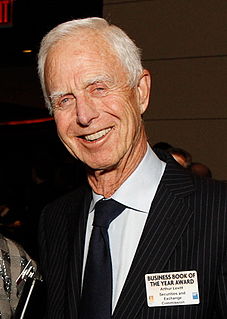A Quote by Jose Ferreira
It is intellectually dishonest to lump venture investors with hedge fund and buy-out investors.
Quote Topics
Related Quotes
The idea that a bell rings to signal when investors should get into or out of the stock market is simply not credible. After nearly fifty years in this business, I do not know of anybody who has done it successfully and consistently. I don't even know anybody who knows anybody who has done it successfully and consistently. Yet market timing appears to be increasingly embraced by mutual fund investors and the professional managers of fund portfolios alike.
I think there are probably too many hedge fund managers in the world, as well as active fund managers. The hedge fund industry is very efficient. We see a lot of hedge funds open and a lot close. It's very binary. You either succeed or fail in the hedge fund world. If you succeed, the amount the managers make it beyond most people's wildest dreams of wealth.
You're talking to investors - and investors, they look at you and they realize, you know, not every business they invest in are the founders or the people running it going to have every bit of skill - and I think they looked at me and realized, OK, this is a guy who's got a lot - I'm much older than the usual run of people they fund.
The big advantage that we have as a venture capital firm over a hedge fund or a mutual fund is we have a 13-year lockup on our money. And so enterprise can go in and out of fashion four different times, and we can go and invest in one of these companies, and it's okay, because we can stay the course.
State funds, private equity, venture capital, and institutional lending all have their role in the lifecycle of a high tech startup, but angel capital is crucial for first-time entrepreneurs. Angel investors provide more than just cash; they bring years of expertise as both founders of businesses and as seasoned investors.
I believe that the behavior of too many of our corporations investment bankers and fund managers has jeopardized some of the trust that investors have had. It's not the economic engine that we need to focus on, but the need to make sure that our investors receive their fair share of the returns that that great economic system produces.
There is not necessarily a good reason why a regulator should have to be involved in product design and marketing for rich and sophisticated investors. We recommend that such investors should be able to sign a piece of paper, which allows them to go ahead and buy unregulated products at their own risk.






























